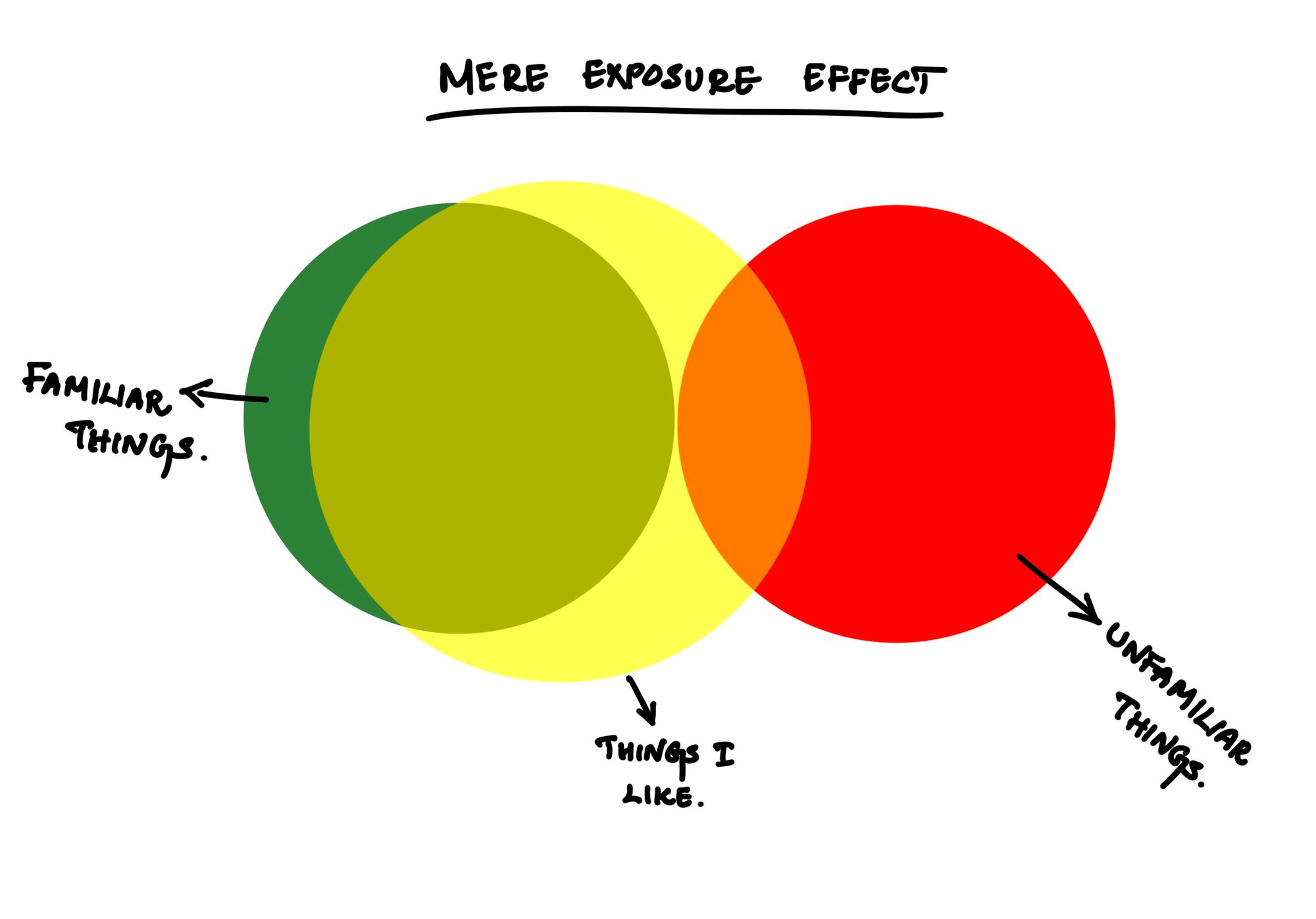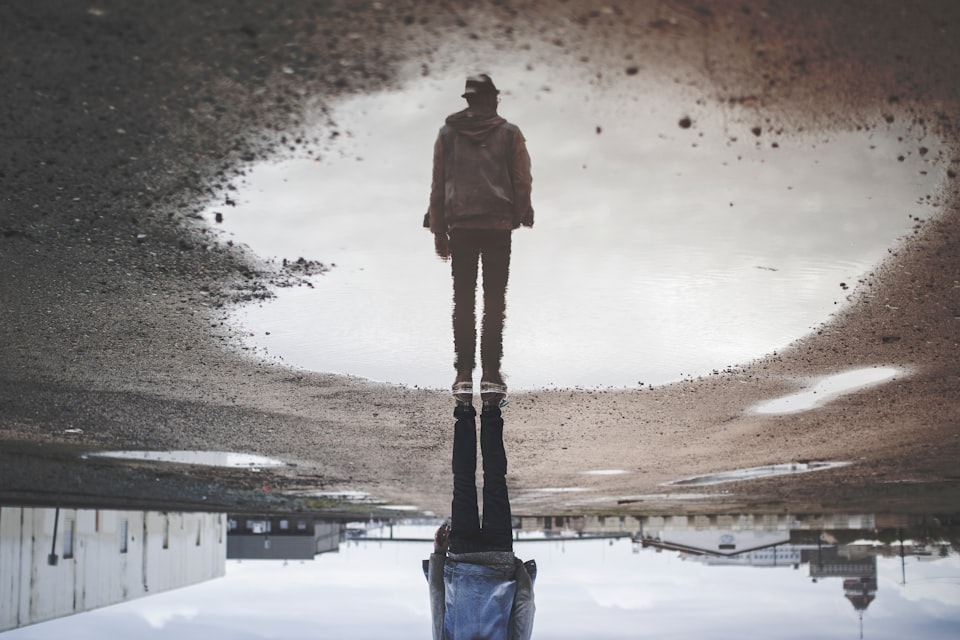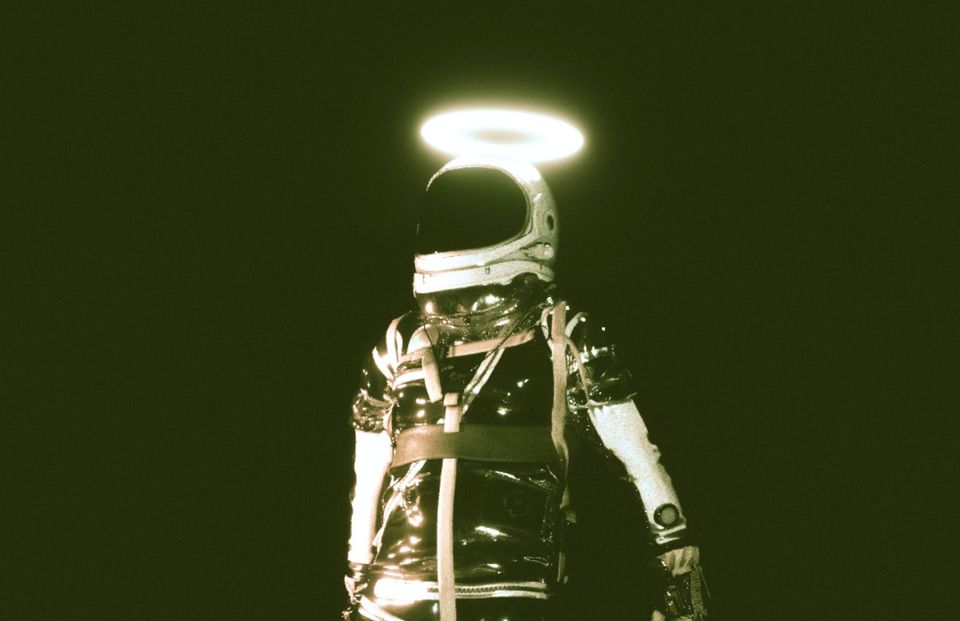Hi, there! After a while, here's another Cool Concepts post with topics that made me think about the weird, interesting ways in which the human mind and body work. Let's get into it.
The Mere Exposure Effect
What it is
The mere-exposure effect is a bias that exists in our minds. It's a tendency by which we tend to like/prefer something just because we are familiar with it.
Why it happens
This happens due to 2 main reasons. Firstly, it reduces uncertainty and we are evolutionarily wired to avoid unfamiliar options. Secondly, it occurs due to "perceptual fluency" where we can better understand and intercept things that we have seen before. Our mind automatically finds the path of least resistance and responds to familiar options.
Why it's important
This might lead to suboptimal decision-making at personal, and organizational levels. In the decision-making process, we should choose the best option, not the familiar option. This restricts us in our comfort zones and prevents us from exploring what we don't know. Sometimes the new option is the best. Exploring new options might lead us to better decisions, and valuable lessons that we wouldn't learn otherwise.
How to avoid it
Sometimes, the mere exposure effect eventually takes care of itself. We tend to lose interest when repeatedly exposed to the same things. For example, we get bored of a song we initially loved listening to multiple times. While that's a good thing, it might be too late while it lasts. A proactive strategy is being open to exploring unfamiliar, diverse, new options and experiences. It's important to stop and think when we become too familiar and comfortable with something. We should ask ourselves if we are settling for a comfortable option rather than making an informed decision.

Mirrors and Perception
This was a small epiphany that I had recently, and I'd like to hear your thoughts on this one. We have all been looking into mirrors all our lives for several reasons, the most important one being, to assess how we look in front of others. Whether we admit it or not, we care about our appearances in varying degrees and groom ourselves to look and feel good. We think how we appear to ourselves in the mirror is how we appear to others. This is the basis of our perception of ourselves and our identity. For example, I have seen myself only in mirrors and photographs. I haven't seen myself as a whole in person — I haven't seen my face at all, I have only seen the rest of my body upside down from the top, not the "front-facing" view like others have, and I haven't seen my back at all. So what I perceive as "myself" is pretty much a reconstruction of my mirror images, photographs, and the "upside-down" view of my body.
For simplicity, let's consider only our faces (Yes, that's me in the picture below - Hi!). The default front camera setting in most phones is to replicate what I see in the mirror. The image on the left is the familiar face I've seen all my life. Now when I flip it along the vertical axis, I usually like it less than the unflipped version as this face is weird to me. If you look at the below picture, you probably find the right one closer to how I actually look. This is how I appear to everyone in real life, but I've only seen the left version in the mirror. I realized that how I appear to myself in the mirror, is NOT how I appear to others. In fact, I appear the opposite.

Consider another instance. Let's say you, the reader and I stand next to each other facing a mirror. When we look at my face at the same time, both of us see Figure 1 as it's the actual mirror image. But we don't perceive it in the same way because, for me, it's the face I've been seeing all along. But for you, my face looks weird as it's not what you are used to seeing. The definition of "real" and "mirror" are flipped for both of us. I perceive the mirror image (the left one) as real because that's my perception of myself. But it's not the case for you. The same goes for me with you, too.
So, applying this to the rest of the body, I'm trying to convey that for people who have insecurities about how they look, and body image issues, one way to see it is that others don't perceive us the same way we do ourselves. Most of us even have a favorite side of our faces, and we think the other side doesn't look good and we are insecure about it. But guess what, others most likely don't even see a difference. So, this could be a way of letting go of those thoughts and realizing that what others perceive of us, is completely out of our control and no matter how much we look in the mirror and feel good or bad, others are always going to see us in a different way. While it's essential to look and feel good, we are much more than how we appear. I'm not proposing this thought process as a solution to overcome insecurities and body image issues, but this was a good way of understanding my self-perception.
Phantom Limb
A Phantom limb is a condition experienced by amputees, where they feel sensations from a limb that no longer exists. This is sometimes painful, and the patients feel that the missing limb still exists. Around 80-100% of amputees report this syndrome and apparently, it's a difficult problem to understand and treat. In most cases, the condition disappears two to three years after the surgery. However, in some cases, the condition becomes chronic and becomes resistant to treatments. Experts believe that this is caused due to a mix-up in the nervous system signals, between the brain and the spinal cord. When a body part is amputated, the neural connections to the brain remain in place, which is most likely the cause of these sensations. All things considered, it's wondrous how the human body works.
What are some cool things you learned about the human mind and body recently? I'd love to know. Thanks for reading. Peace out.



